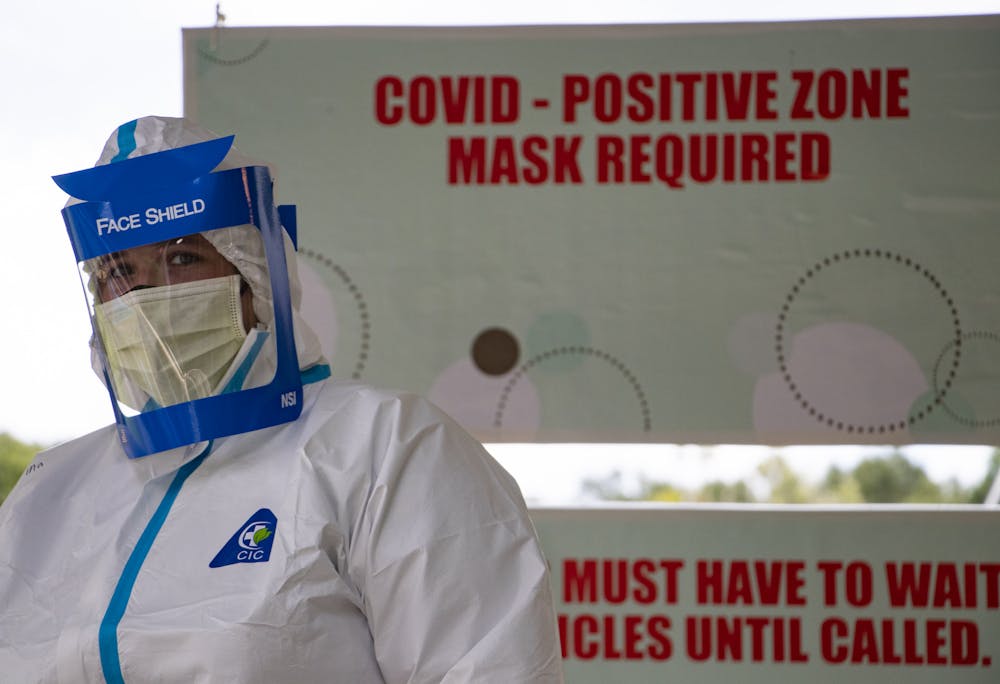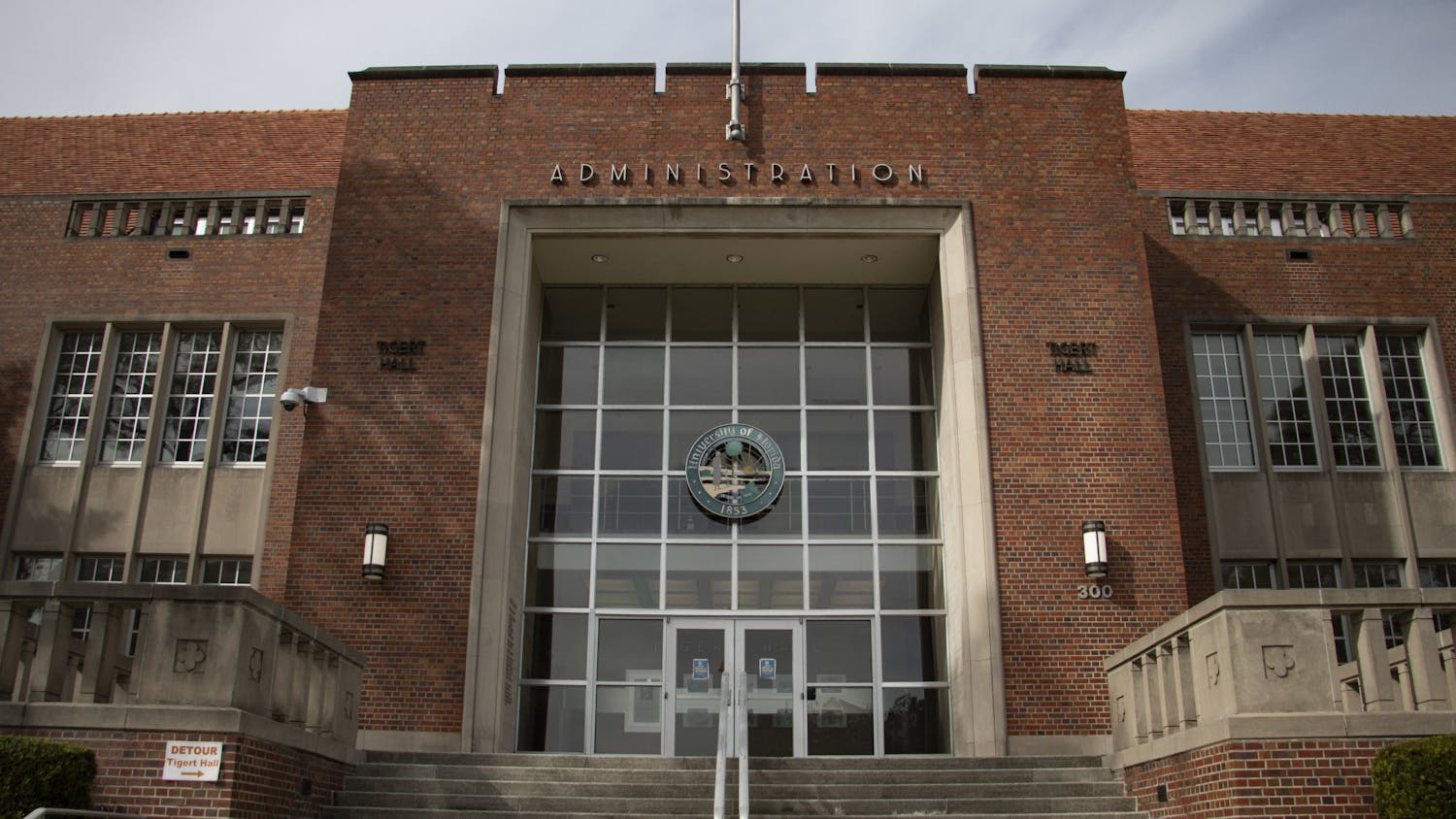After being exposed to COVID-19, Dan Grabhorn, a 57-year-old Gainesville resident, heard about a High Springs monoclonal antibody treatment site through his wife, who had already received it Sept. 13.
Seeing the treatment’s positive effect on her, he didn’t want to run the chances of developing severe symptoms and decided to get it himself.
“This was the only option she was looking at, and I’d say she’s happy and feels better after taking that,” Grabhorn said.
The rollout of this treatment option was an initiative by Gov. Ron DeSantis, meant to give patients monoclonal antibodies without a prescription or referral. Increasing vaccination rates and the treatment could make a difference in hospitalizations from last year to this year, according to Florida Hospital Association data.
Shane Campbell, 24, and his grandmother, 73, received the treatment Sept. 15. Campbell’s 78-year-old grandfather received it Sept. 13 after he had a positive COVID-19 test result.
He was thankful he and his grandmother could get the same treatment as a precaution before either of them fell ill. He said he trusts this practice because it's been around for decades. Campbell said the treatment has worked wonders for his grandfather after only two days.
“Today, he was up and walking around, and he actually looks like a person,” Campbell said.
The Alachua County monoclonal antibody site opened Aug. 24. Fellowship Church of High Springs, located at 16916 NW U.S. Highway 441, hosts the clinic in its gymnasium, which is able to hold up to 300 patients. Because the gymnasium is detached from the rest of the church and safety protocols are in place, the church can still operate and hold services.
The Fellowship Church location is one of the 25 monoclonal antibody sites across the state and sees roughly 150 to 200 patients per day, according to Paul Myers, administrator of the Florida Department of Health in Alachua County. The church previously served as a COVID-19 vaccine location earlier in the year.
Monoclonal antibodies assist the immune system in identifying and targeting the COVID-19 virus more effectively, Myers said. It prevents serious illness and death among high-risk people like those who are elderly, overweight, diabetic or have compromised heart, lungs, kidneys or immune systems.
The treatment consists of two injections in the stomach area and one in each arm.
According to treatment guidelines, monoclonal antibodies work best when administered upon notification of a COVID-19 positive status. Monoclonal antibody treatment has shown a 70% reduction in hospitalizations and death in clinical trials.
Those already hospitalized with COVID-19 issues are unable to receive the monoclonal antibody treatment because the effects are unknown. Clinical trials are currently underway to determine the safety of monoclonal antibodies in hospitalized COVID-19 patients.
Myers wants to keep the Alachua County site open as long as people need it. He said this is a free and painless option for anyone exposed who wants protection and treatment quickly.
“The immune response is just about immediate,” Myers said.
The U.S. Food and Drug Administration authorized the treatment under an emergency use authorization. The treatment is available for any person at least 12 years old, no matter their vaccination status.
Mitch Knutson, 52, is looking into the monoclonal antibody treatment for his 78-year-old father. He hopes the treatment will protect him.
“I think it’s fantastic, and there’s good science behind it,” Knutson said. “This is like having immediate antibodies.”
Contact Troy at tmyers@alligator.org. Follow him on Twitter @Troy_Myers1.

Troy is the criminal justice reporter and a fourth-year journalism major with an outside focus in business administration. He previously studied accounting for two years at Santa Fe College but has since transferred to UFCJC. When Troy isn’t writing, he enjoys going to the beach and spending time with his dog, identical twin brother and family.






